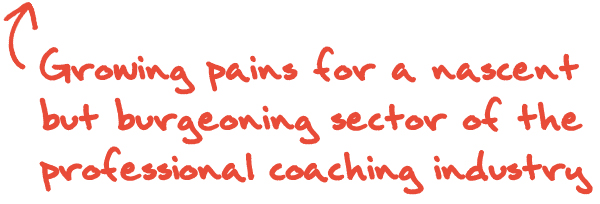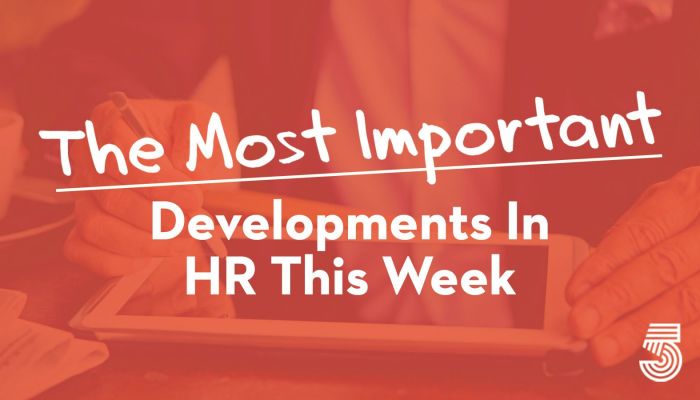The M.I.D., as we call it, is curated by our editorial team from more than 50 news sources. Like a lot of good ideas, this started as something I wanted for myself. If I can’t read everything, I at least want to stay abreast of the most important developments.
This week in HR, we learned: Blind may be the new Glassdoor, sales people want career support not more money, and flexibility is key to going back to the office or not. Meanwhile controversy hits Prince Harry’s BetterUp, and Forbes released its Best Employers for Diversity 2022.


Human resources leaders have expressed concerns over the generally anonymous nature of reviews often posted on platforms such as Reddit and Glassdoor. One site that is increasingly spurring anxiety is Blind – an anonymous professional network with more than 5 million verified workers that has already taken the tech world by storm. HR professionals say that would-be employees are now getting a skewed picture of the workplace and it’s making an already challenging recruitment process that much harder. Blind bills itself as a “trusted community where verified professionals connect to discuss what matters most.” The platform initially caught on among Silicon Valley companies like Apple, Google, Meta, and Microsoft, where as many as one in four employees from those companies have used Blind, according to its data. Amid the pandemic, tech workers unsatisfied with pay and career growth while also navigating return-to-office plans have turned to Blind to share their discontent. Blind says that the number of monthly active users has doubled since the start of the pandemic, while the number of comments on Blind tripled. The most popular discussions focused on COVID-19-related workplace policies, including layoffs, promotions or raises, remote work, vaccination policies, and more. CNBC


One of the most significant growth challenges CEOs and commercial leaders face is hiring and retaining sufficient sales talent. According to our internal SBI benchmarking, most business-to-business sales organizations exited December 2021 with a startling 10–15% open sales headcount. But the real “sales capacity at risk” figure is closer to 50–60% when factoring in open headcount, attrition, lower productivity levels from a glut of new hires, and required growth hires to meet higher revenue targets. Our research revealed that most sales professionals (56%) were actively searching for a new job. Compensation is easily the most frequently utilized lever to mitigate turnover, but what sales professionals truly value are companies committed to their short- and long-term success. When it comes to staying or leaving, sellers prioritize how well the company will advocate for, and help them succeed in the near term, and evolve long term as sales professionals. HBR


As many large employers ramp up returning to offices this spring, a worrying disconnect is emerging between workers and employers that HR leaders need to monitor given its possible impact on employee retention. A majority of managers, according to a recent survey, believe that a full-time return to the office will happen soon (60%) and even more (75%) want workers in the office, citing a potential lack of focus, loss of company culture, and diminished productivity if they don’t return. At the same time, nearly as many of those managers (73%) also agreed that employee productivity and engagement had either improved or stayed the same compared with pre-COVID in-office work. Also revealed is a divide between “how managers feel about managing remote workers and the productivity their teams are maintaining in remote work settings,” says Max Wesman, chief operating officer for GoodHire, which commissioned the survey, titled “The Great Return: Survey of Managers Reveals Return to Office Battle in 2022.” Today, only a handful of employees (12%) report that they prefer to always work in the office, while most (80%) expect their prospective employer to allow them to work remotely several days a week. HR Executive


Over the past two years, the focus on racial disparities has put a spotlight on several industries. The impact of COVID-19 on the lives and livelihoods of Black families has raised questions about healthcare equity. The economic fallout for Black workers and Black-owned businesses has once again illustrated the need for financial inclusion and access to capital. Meanwhile, remote learning has turned attention to the disparities in resources and academic outcomes for students in underserved communities. So perhaps it’s no surprise that those sectors have been laggards in embracing the importance of racial diversity in serving the underserved. However, the devastating impact of COVID-19, combined with heightened attention to racial inequities following the murder of George Floyd in May 2020, appears to be having some impact. Although far from sufficient, those sectors made the greatest gains in addressing one of the key factors in advancing representation in Forbes’ 2022 list of America’s Best Employers for Diversity. This year’s list features a higher proportion of companies in banking and financial services, the healthcare and social sector, and education. Each sector increased its presence on the 500-company list, with each making up 8% of the list versus 6% last year. Forbes


Valued at nearly $5 billion, the “mental fitness” startup BetterUp has faced weeks of turmoil after it abruptly changed the pay structure for its career coaches. Prince Harry signed on as the chief impact officer of BetterUp last spring, promising to help promote the startup’s mission of “mental fitness” and its army of more than 2,000 professional coaches. But an uprising has been brewing among the company’s career coaches following BetterUp’s recent announcement that it would modify their contracts. Two key issues were at the center of the still-evolving dispute: coaches’ pay and a new rating system that would also influence their fees. The firm’s new metrics retroactively evaluated coaches in part based on how “life-changing” a client found their guidance and how frequently they met for sessions. Those changes in particular stirred unrest over concerns that they would violate industry norms and cause coaches to pander to their clients rather than offer impartial feedback. “[If] I’m coaching a member, I don’t want to be focused on how they’re going to rate me,” a BetterUp contractor said. Now, BetterUp says it’s working to modify its plans — though the details are still vague. Daily Beast










